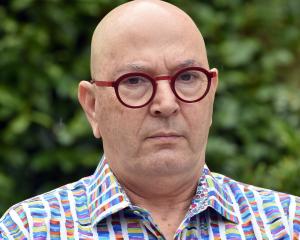Police expect the number of mental health callouts they receive across the Southern District to continue rising, as data reveals attempted and threatened suicide callouts in Otago reached a three-year high in May.
Inspector Damion Rangitutia, of Dunedin, said total number of mental health callouts, including suicide threats and attempts, had risen by 24% since 2014 in the Southern District, which includes the coastal Otago, Southland and Otago-Lakes areas.
Police always worked with the Southern District Health Board at a regional and area level, and they were ``seeing each other more often'' with increasing mental health demand.
``With the trend going upwards, we are looking at focusing more attention into this area,'' he said.
Data available on the police website, dating back to July 2015, also showed the number of threatened or attempted suicide callouts in the Otago Coastal region reached a high of 116 in May 2018. The area identified as Otago Coastal reaches from Omarama and Kurow to South Otago, including Dunedin city and Oamaru.
Figures for the area rose above 100 for the first time in May 2017, and since then there have been three other months when numbers of recorded callouts climbed over 100. Records for before 2015 were not available on the site.
RNZ reported earlier this month that on average there were nearly 60 attempted or threatened suicide callouts across the country every day in 2017, with callout numbers rising by 50% since 2012.
Insp Rangitutia said police had support in place to help officers, as well as professional development, in addition to what they received in college.
Family harm meetings provided police with an opportunity to identify people at risk, and the planned rollout of a triage line for emergency services was expected to make a difference to frontline police.
It comes after the rollout of the 1737 public helpline, which offers counselling and support to the public.
SDHB mental health, addictions and intellectual disability general manager Louise Travers described the situation as a ``disturbing trend'' and said the DHB valued the close working relationship it had with police.
WellSouth suicide prevention co-ordinator Paul Martin said there could be a variety of reasons for the increase, including more information provided to the public on suicide risk, and where to go to for help.
Advertisement













